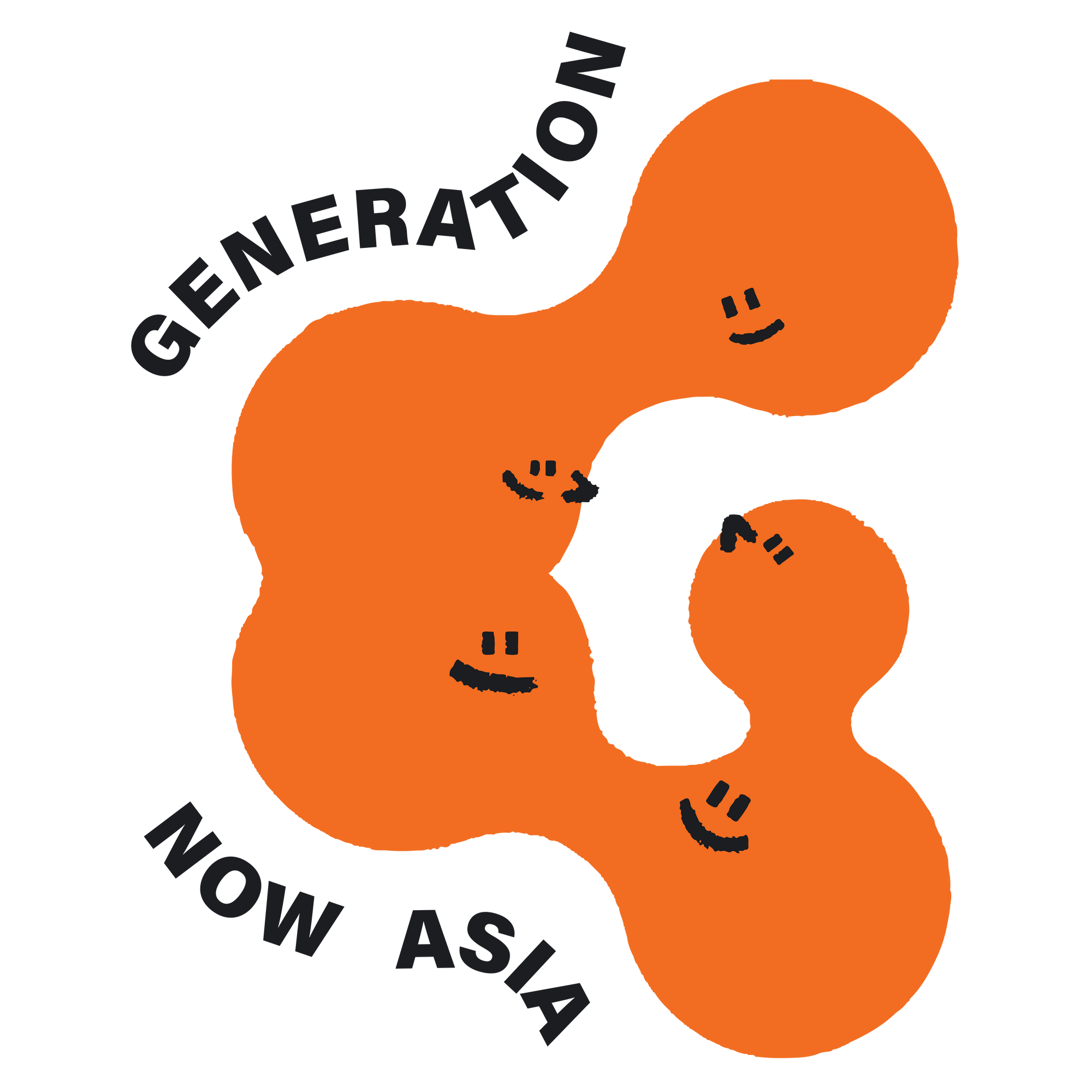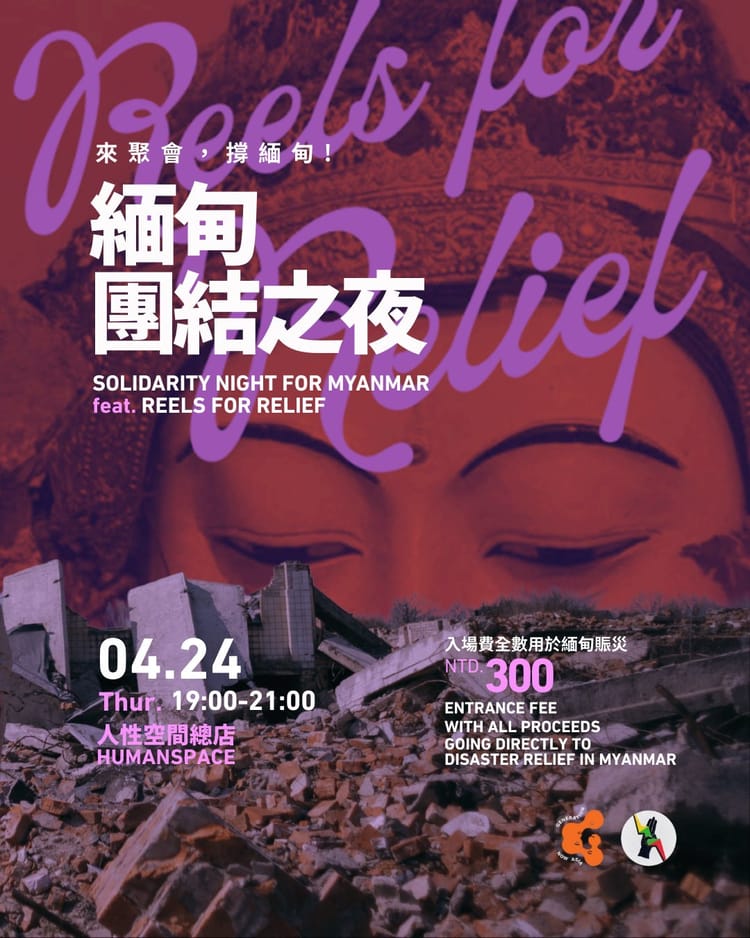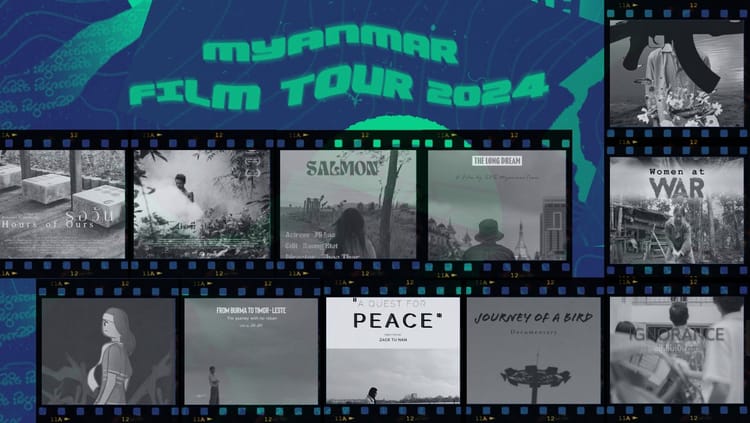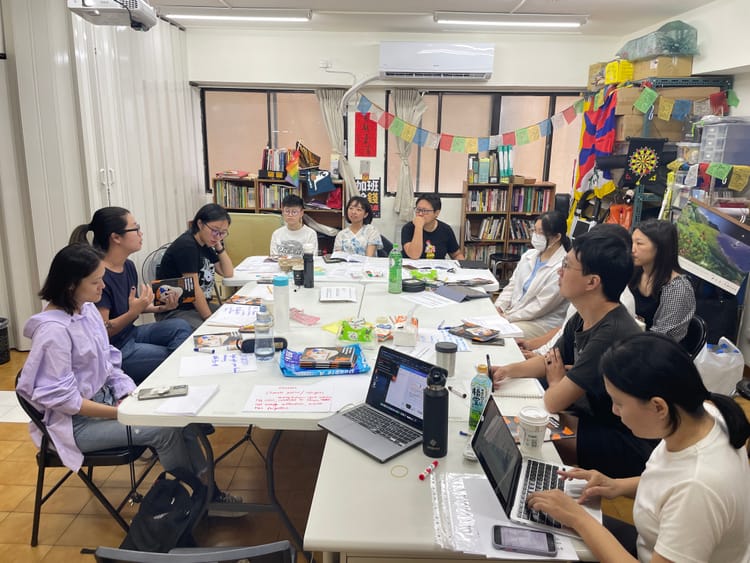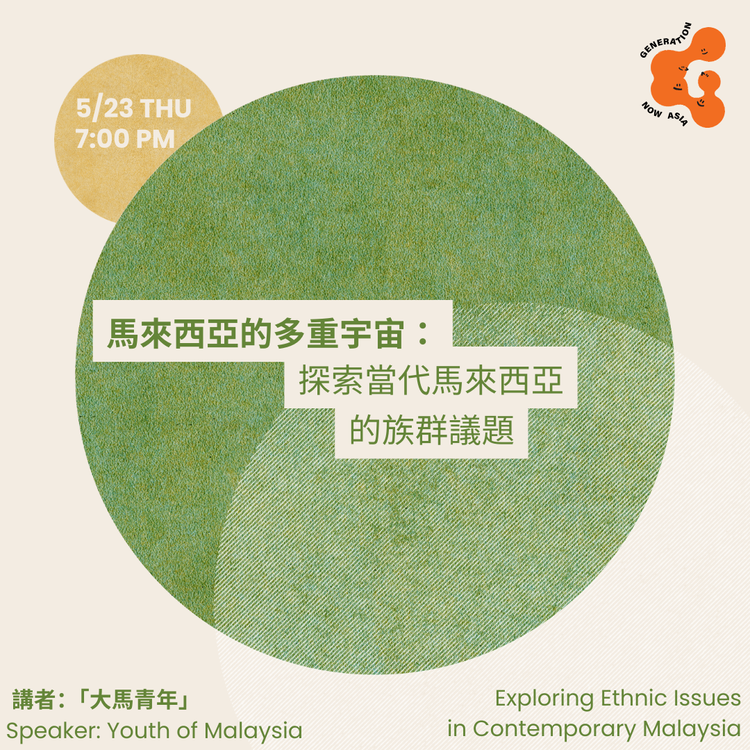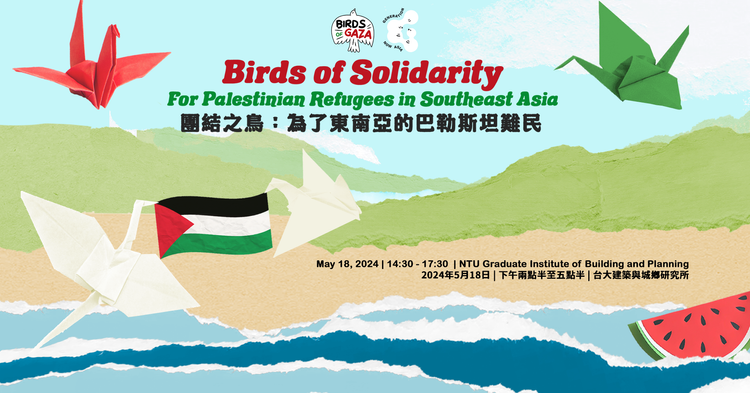Notes from GNA’s December event, Filipinos for Palestine: How the Philippines and Palestinian struggle for national liberation are interconnected
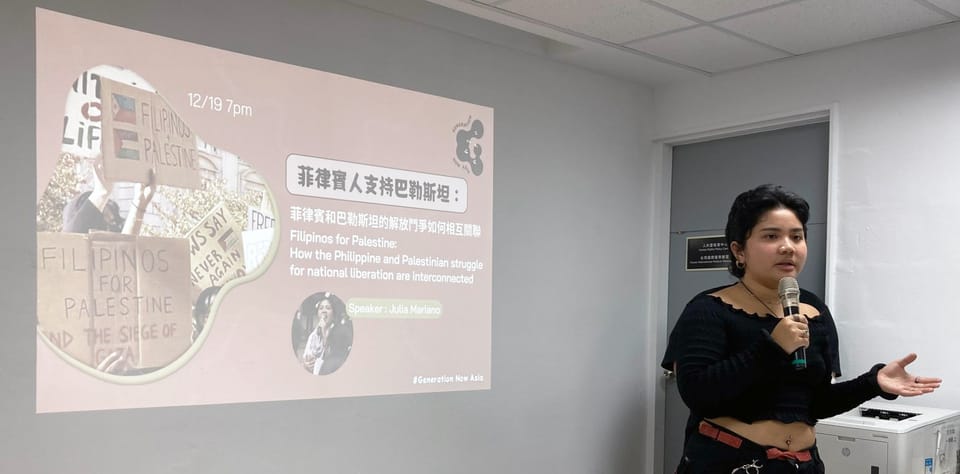
For GNA’s December Monthly Event, we were honoured to have the Filipino youth activist, Julia Mariano, joining us. Their insights connected the struggles for national liberation in Palestine and some parts of the Philippines. Julia underscored their solidarity with the Palestinian people and offered context to comprehend the root causes that connect the crises in both Gaza and the Philippines.
About the speaker:
Julia Mariano (they/them) is the spokesperson for Migrante International-Taiwan chapter, a rights organization for Filipino migrant workers in Taiwan. Their early involvement with activism in the Philippines began from being a member of Anakbayan, a national democratic mass movement with chapters worldwide, that push for genuine national democracy and strict opposition to foreign imperialist powers. Their background in this militant youth organization has shaped them in forging the solidarity among the students, workers, and peasants sector through campaigning for their rights and amplifying the intersectionality of their struggles. After having moved to Taiwan, they have been active in organizing efforts towards Filipino migrant workers through union building and workers’ rights campaigns.
Conflicts in the Philippines:
During the 5 month 'Battle of Marawi' in 2017, civilians in Mindanao suffered extreme loss, with many killed, thousands lost their homes and were displaced. The clash involved the Philippine military combating extremist militants aligned with the group identifying as Islamic State (IS) who targeted Christian civilians carrying out at least 25 extrajudicial killings, mass hostage-taking, and widespread looting of civilian property. Meanwhile, the Philippine military (AFP) detained and mistreated civilians attempting to escape and their extensive aerial bombing of Marawi city's militant-held zones resulted in the destruction of entire neighbourhoods and caused the loss of many civilian lives.
In a span of a month, the conflict forced 360,000 individuals in Marawi (an Autonomous Region in Muslim Mindanao in the southern Philippines) and nearby regions to flee. Most civilians evacuated Marawi city, yet thousands were either held hostage or stuck amid the conflict's crossfire.
This image below was taken a year following the siege, where there was still a glaring absence of government initiative in rebuilding the city. The residents of Mindanao persist in enduring poverty and lack essential aid to return to their cities from which they were displaced.
The Lumad Indigenous group continues to face loss of ancestral lands through land grabbing practices, their communities are being displaced by mining, logging and energy corporations encroaching upon their territories. Furthermore, Lumad mountain communities are being militarised and there are widespread violations of children's rights as educational facilities are being misused for military purposes. In Addition, community leaders and teachers have been unjustly detained by the military under suspicion of supporting rebel causes.
Save Our Schools provides temporary schools for students to find safety and refuge, they are a network of child rights advocates, organisations and various stakeholders working together to bring light and take action on the ongoing violation of children’s right to education, particularly those in the context of militarization and attacks on schools.
Similar to the distressing situation in Gaza, where civilian populations are displaced without a safe refuge, the Lumad Indigenous peoples have faced multiple evacuations from their mountain homes, often having to flee on foot. Furthermore, both have encountered media blockades, in Mindanao this blockaid forced the Lumad people to journey to cities to spread awareness about their plight and share the realities of their experiences that otherwise go unreported. Similarly, in Gaza, we've witnessed young Palestinians utilising their social media as a platform for citizen journalism, documenting the horrific realities of ongoing events. Their coverage serves as a crucial source of news to the world, especially when foreign journalists face restrictions imposed by Israel.
Why is the Philippine government exerting violence and forcible displacement towards its own people?
“Whenever there is war and violence, there is usually an economic interest, whenever the conversation is about Indigenous land there is always economic interest.”
An evident parallel emerges between the situations in the Philippines and Gaza concerning Indigenous populations, with both involving governments seizing Indigenous lands to accommodate the interests of foreign investors.
Mindanao is rich in natural mineral resources and home to half of the country’s mineral wealth, including copper, gold, iron, aluminium in addition to significant natural gas and oil deposits. Similarly, the influence of fossil fuels may be a big factor for Israel's invasion of Gaza, given the billions of barrels worth of oil offshore of Gaza and beneath the occupied lands of Palestine, it serves as an incentive for Israel to assert control over the area for its own economic gains.
Military Support
Julia continued to note how both the Philippines and Palestine have parallel histories of colonisation, emphasising the enduring impact of US imperialism evident in both regions, stemming from military conquests and political diplomacy. From its oppressive occupation in the early 20th century to the establishment of military bases in present times, the US has long had a brutal, domineering relationship with the Philippines.
Israel heavily relies on US-imported weaponry, making up the majority of its armaments; this US weaponry is then deployed in Gaza through Israel's military actions. In every war against Gaza a range of weapons and surveillance technology is used against the Palestinians which is then disturbingly marketed as ‘battle proven’ and sold to the international market, among them being the Philippines.
Similarly, the US extends military support to the Philippines' government, despite its documented history of human rights abuses. The Philippine government employs tactics like 'red-tagging,' branding progressives and rights advocates as 'communist-terrorists,' and employs these supplied weapons in targeted killings of civilians that are trying to raise awareness of a cause. This narrative echoes the alarming trend of labelling Palestinians as 'terrorists,' and leading to Isreali’s horrific justification for the bombings and displacements we are currently seeing in Gaza.
Moreover, a pressing mental health crisis is evident in both regions, stemming from the severe trauma experienced by these Indigenous communities. Julia highlighted the distressing impact on Lumad students, who exhibit signs of distress—startled even by mundane sounds like the air conditioner, reminiscent of bomb-related noises, similar to the terrifying effect fireworks have on the people of Gaza.
What does resistance look like?
“When we talk about resistance, the big part of resistance that gets demonised is when they use violence, but by default when you are colonised you are on the defence.”
“One thing is to resist physically, the other thing is to resist mentally…It’s not just those that take up arms that are resisting, but those who continue to tell the stories, those who continue to tell the facts, they are also resisting the war of propaganda, they are also resisting the narratives. Their continued assertion of their right to the land is a manifestation of resistance. To fall into community when the enemy so desperately wants to fragment us, when the enemy so desperately wants us to see our struggles as individual struggles, as struggles that are scattered and not interconnected, that is also a big and important part of resistance.”
What can we do?
- Speak louder than the oppressor, but quieter than the oppressed
- Use your safety and privilege to talk about what is happening
- We must bare witness to the genocide, amplify Palestinian Voices and share the Palestinian narrative
- On the ground journalists in Gaza to follow
- Raise awareness and deepen conversations about the root cause
- How the struggles are interconnected
- Call for a ceasefire
- Print signs
- Sign ceasefire petitions (e.g. Amnesty International Ceasefire Action)
- Harness the power of social media
- Boost the algorithm by sharing palestinian voices
- Lean into community and not into despair
- We owe Gaza our endurance, find supports group to continue calling for a free Palestine e.g. 可以自由巴 For Peace Taiwan
- Show your solidarity through your clothes if it is safe to do so
- Wear a Palestinian keffiyeh
- Boycott
- Boycott, Divestment, Sanctions (BDS) is a Palestinian-led movement for freedom, justice and equality. BDS upholds the simple principle that Palestinians are entitled to the same rights as the rest of humanity.
“We [Filipinos] stand in solidarity, because we know we have a common enemy”
Julia finished their presentation by reciting the Palestinian poem, If I Must Die by Refaat Alareer
If I must die,
you must live
to tell my story
to sell my things
to buy a piece of cloth
and some strings,
(make it white with a long tail)
so that a child, somewhere in Gaza
while looking heaven in the eye
awaiting his dad who left in a blaze—
and bid no one farewell
not even to his flesh
not even to himself—
sees the kite, my kite you made, flying up above
and thinks for a moment an angel is there
bringing back love
If I must die
let it bring hope
let it be a tale
If you found this article interesting, do make sure to attend our next GNA Monthly event which will go deeper into the issue of Farmers Rights, Poverty and Land Grabbing in the Philippines
